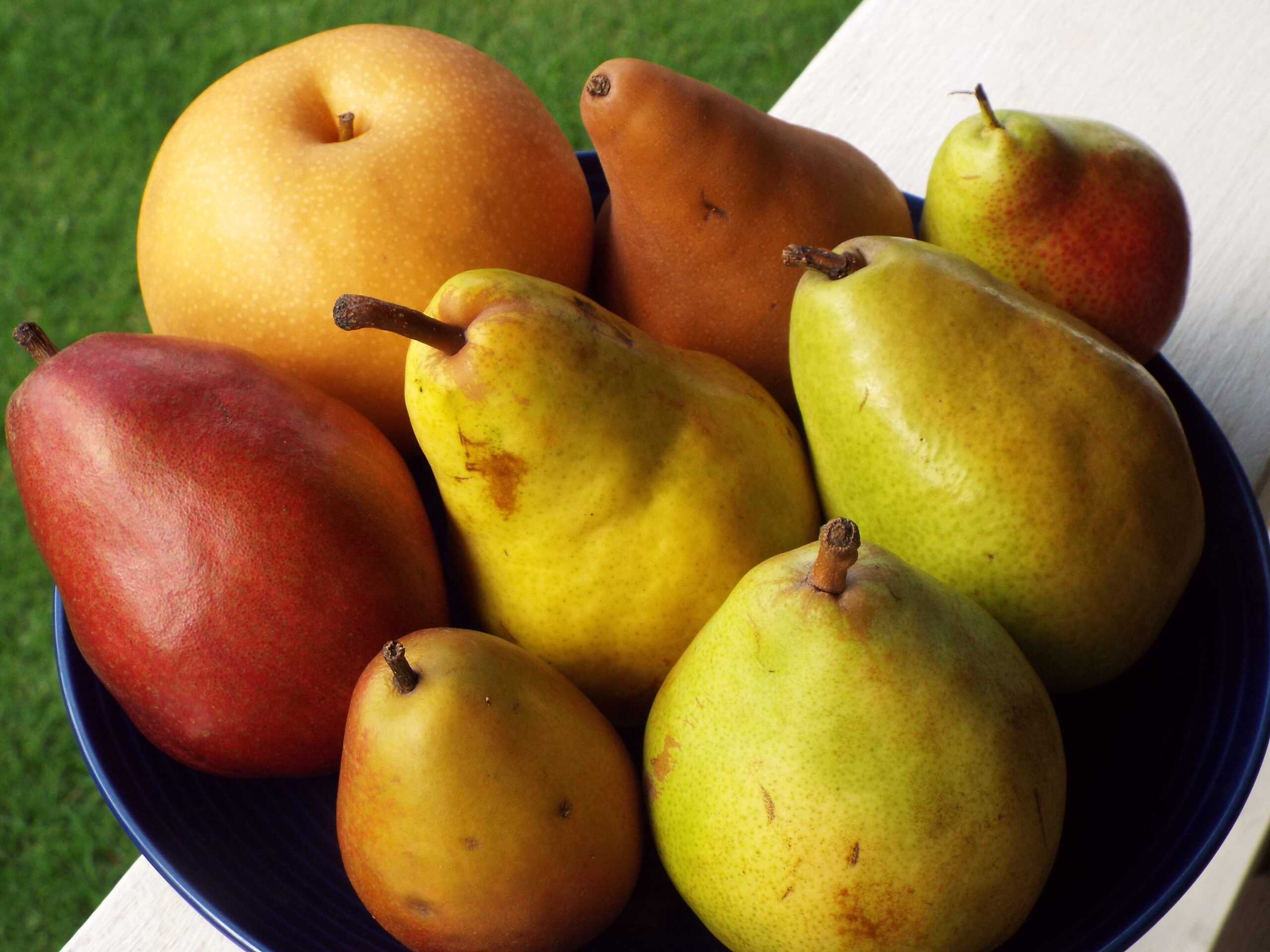Health Benefits of Pears
What are the health benefits of pears?
Pears are a nutritious fruit that offer several health benefits:
- Rich in Fiber: Pears are an excellent source of dietary fiber, which can help promote digestive health, prevent constipation, and support healthy cholesterol levels.
- Antioxidant Properties: Pears contain antioxidants such as vitamin C and flavonoids, which help protect cells from damage caused by free radicals and may reduce the risk of chronic diseases.
- Heart Health: The fiber, potassium, and antioxidants in pears can help support heart health by lowering cholesterol levels, reducing blood pressure, and decreasing the risk of heart disease.
- Weight Management: The fiber in pears can help you feel full and satisfied, which may aid in weight management by reducing overall calorie intake.
- Blood Sugar Control: Pears have a low glycemic index, which means they cause a slower rise in blood sugar levels. This can be beneficial for blood sugar control, especially for people with diabetes.
- Anti-Inflammatory Properties: Some studies suggest that the antioxidants in pears may have anti-inflammatory effects, which could help reduce inflammation in the body.
- Hydration: Pears have a high water content, which can help fight dehydration and promote healthy skin.
- Bone Health: Pears contain vitamin K, which is important for bone health and may reduce the risk of osteoporosis.
- Skin Health: The vitamin C and other antioxidants in pears can help protect the skin from damage caused by UV rays and pollution, keeping it looking healthy and youthful.
Overall, pears are a nutritious fruit that can be a healthy addition to your diet. They can be enjoyed fresh or used in a variety of dishes, such as salads, smoothies, and desserts, to add flavor and nutritional value.
What are the health risks of pears?
Pears are generally safe for most people when consumed as part of a balanced diet. However, there are a few potential health risks associated with pears:
- Allergic Reactions: Some individuals may be allergic to pears, although pear allergies are less common than allergies to other fruits. Allergic reactions can range from mild symptoms such as itching and swelling to severe reactions such as anaphylaxis.
- Fruit Pit: The seeds of pears contain amygdalin, a compound that can release cyanide when metabolized. While it would take a large number of pear seeds to cause harm, it’s best to avoid consuming them.
- Gastrointestinal Issues: Some people may experience digestive issues such as bloating, gas, or diarrhea from eating pears, especially if they are consumed in large quantities or if they are not fully ripe.
- Pesticide Residue: Like other fruits, pears can contain pesticide residue, especially if not organically grown. Washing pears thoroughly before eating them can help reduce pesticide exposure.
- Sensitivity to Sorbitol: Pears, especially when overripe, contain sorbitol, a sugar alcohol that can cause digestive issues such as bloating and diarrhea in some people, particularly those with irritable bowel syndrome (IBS).
Overall, pears are a nutritious fruit that can be enjoyed as part of a healthy diet. However, individuals with allergies, digestive issues, or concerns about pesticide exposure should consume pears with caution and consult with a healthcare professional if they have any concerns.




